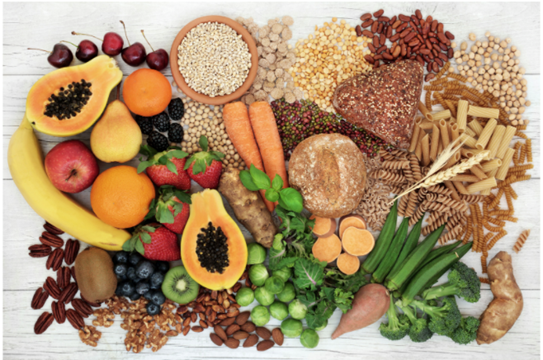March is National Nutrition Month

Did you know that March is National Nutrition Month? This month, we’re going to focus on adding fiber to your meals. Dietary fiber is often overlooked but it so important for your health. Fiber adds bulk to stools and softens them, making it easier to have bowel movements. This helps prevent and relieve both constipation and diarrhea. Fiber can also regulate blood sugar levels, improve cholesterol levels, and keep you feeling full for longer. As a general rule, it’s recommended that women eat 25 grams of fiber a day and men eat 38 grams of fiber a day. This month’s goal: boost your fiber intake at each meal. It’s easier than you think.
1. Add fruit to your breakfast. Try a bowl of berries or an apple with the skin on.
2. Have fruit for a snack. Try a banana with some peanut butter for a snack that will satiate you.
3. Add vegetables to lunch and dinner. Try adding just one vegetable to your plate. Frozen or canned vegetables are great to have on hand and last a while.
4. Add beans to soups and salads. Add some cannellini beans or kidney beans to make a soup heartier or try adding some canned black beans or garbanzo beans to your salad.
5. Eat the peel of fruits like apples and pears. The fiber is found in the skin of produce, so if it’s edible, eat it!
6. Cook and eat foods like sweet potatoes with the peel on. By keeping the peel on, you not only save time from peeling, but you get an added benefit of more fiber.
7. Eat whole fruits and vegetables instead of drinking juice. Fiber is lost during the process of juicing, so be sure to eat the whole fruit or veggie. It’s more filling that way, too!
8. Choose whole grain or whole wheat pasta, bread, and rice. These products tend to be brown in color. If reading a food label, the ingredient list should say “whole wheat” or “whole grain.”